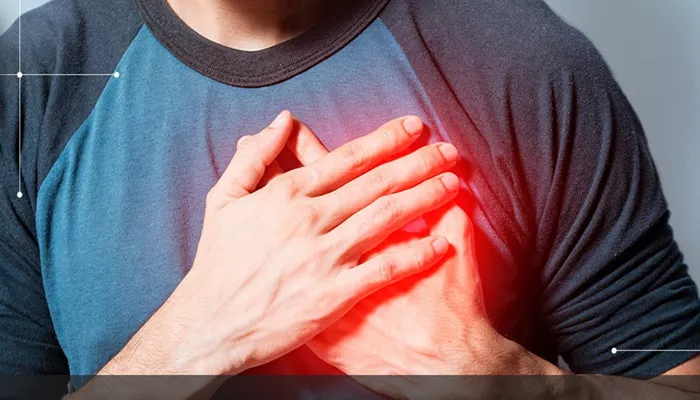Myocarditis, an inflammation of the heart muscle, has garnered significant attention in the context of COVID-19 vaccinations, particularly with mRNA vaccines like Pfizer-BioNTech and Moderna. The concern primarily revolves around the potential for myocarditis to occur following vaccination, especially in younger populations. This article aims to provide a comprehensive overview of the incidence of myocarditis after booster vaccinations, the demographics most affected, and the clinical implications of these findings.
What Is Myocarditis?
Myocarditis is characterized by inflammation of the myocardium, the middle layer of the heart wall. This condition can result from various factors, including viral infections, autoimmune diseases, and certain medications. In the context of COVID-19 vaccinations, myocarditis has been observed as a rare side effect, particularly following mRNA vaccine administration. Symptoms often include chest pain, shortness of breath, and palpitations, which can mimic other cardiac conditions, making diagnosis challenging.
SEE ALSO: What Puts You at Risk for Myocarditis
Incidence of Myocarditis Post-Vaccination
Research indicates that myocarditis following COVID-19 vaccination is rare but does occur more frequently in specific demographics. The Centers for Disease Control and Prevention (CDC) and various studies have reported that young males, particularly those aged 12 to 29, are at the highest risk.
Risk Factors: The highest incidence rates are observed in males aged 12 to 17, with estimates of about 35.9 cases per 100,000 vaccinated individuals after the second dose of the vaccine. In contrast, the risk of myocarditis following a COVID-19 infection is significantly higher, estimated at 64.9 cases per 100,000 in the same age group.
Booster Doses: Notably, the incidence of myocarditis appears to be much lower after booster doses compared to the second dose of the primary vaccination series. Studies have suggested that instances of myocarditis have not been reported after booster doses, indicating a shift in risk profile as vaccination campaigns progress.
Comparative Risks: Vaccination Vs. COVID-19 Infection
A pivotal study analyzing data from over 43 million individuals in England highlighted that the risk of myocarditis following COVID-19 infection is substantially greater than the risk associated with vaccination. Specifically, individuals infected with COVID-19 were found to be 11 times more likely to develop myocarditis within 28 days of infection compared to those who had received vaccinations.
Statistical Overview: The study revealed that during a year-long monitoring period, only 2,861 cases of myocarditis were reported among the vaccinated population, emphasizing the rarity of this adverse event in the context of widespread vaccination efforts.
Mechanisms Behind Vaccine-Associated Myocarditis
The exact mechanisms that lead to myocarditis following vaccination are not fully understood. However, several hypotheses have been proposed:
Autoimmune Response: It is suggested that the immune response triggered by the vaccine may inadvertently lead to an autoimmune attack on the heart muscle.
Hypersensitivity Reactions: Some individuals may experience hypersensitivity reactions to components of the vaccine, resulting in inflammation.
Viral Mimicry: The mRNA vaccines work by introducing a piece of the virus’s genetic material, which may lead to a response that resembles a viral infection, potentially triggering myocarditis in susceptible individuals.
Clinical Presentation And Diagnosis
Patients with vaccine-associated myocarditis typically present with chest pain, shortness of breath, and palpitations within days of vaccination. Diagnostic approaches often involve:
Electrocardiogram (ECG): To assess heart rhythm abnormalities.
Cardiac MRI: This imaging modality is crucial for identifying inflammation and assessing the extent of myocardial damage.
Blood Tests: Elevated levels of cardiac troponins are indicative of myocardial injury and are commonly observed in affected individuals.
Treatment And Prognosis
The majority of myocarditis cases following vaccination are mild and resolve with appropriate treatment, which may include anti-inflammatory medications and supportive care. Most patients experience symptom resolution within one to three weeks. Long-term follow-up is essential to monitor for potential complications, although serious outcomes remain rare.
Public Health Implications
The findings surrounding myocarditis and COVID-19 vaccination underscore the importance of vaccination in preventing severe COVID-19 illness. Public health authorities emphasize that the benefits of vaccination far outweigh the risks, especially given the higher incidence of myocarditis associated with COVID-19 itself.
Vaccination Recommendations: The CDC continues to recommend COVID-19 vaccinations for eligible populations, including booster doses, while monitoring for adverse events.
Conclusion
In summary, while myocarditis following COVID-19 vaccination is a recognized but rare occurrence, particularly among young males, the overall risk remains low compared to the risks associated with COVID-19 infection. Continued research and monitoring will be essential to fully understand the implications of vaccine-associated myocarditis and to ensure the safety and efficacy of vaccination programs.

